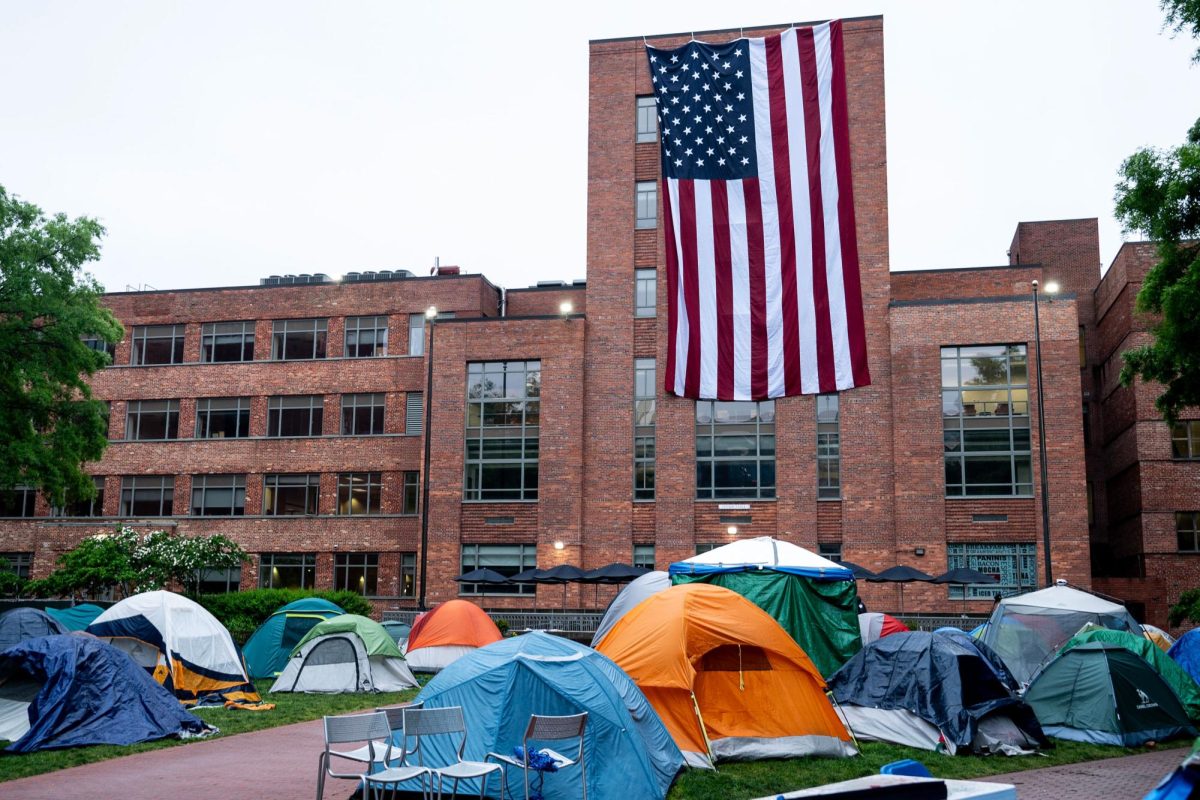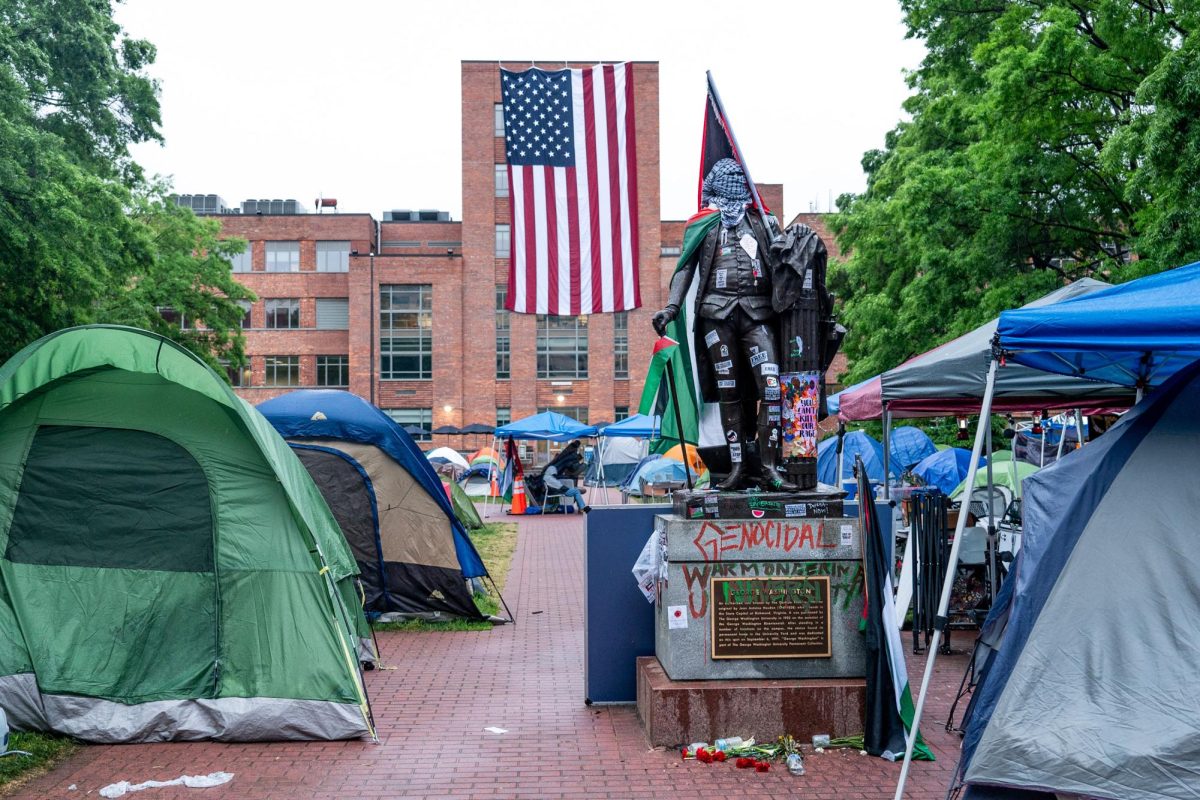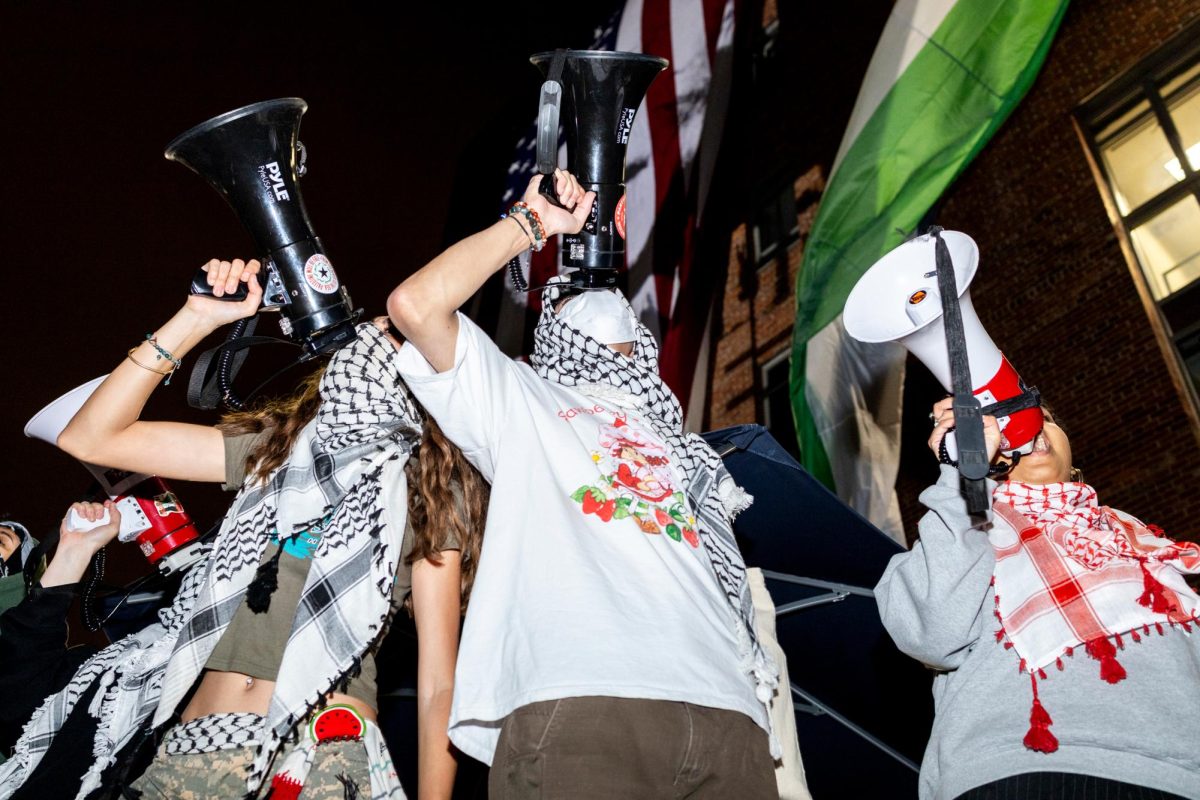Thousands of cancer survivors and activists shouted “no more cancer” on the National Mall Saturday, in an effort to focus the nation’s attention on the fight against cancer and away from the “soap operas in the White House,” said Rev. Jesse Jackson.
From speakers to victims, the message of the day was clear – cancer is not a partisan issue.
“Cancer knows no bounds,” said Rep. John Porter (R-Ill.).
Cancer survivors and activists began planning the first-ever cancer march in April 1997.
Ellen Stovall, president of the march and a cancer survivor, said she thinks “it’s about time” cancer – especially childhood cancer – receives the attention it deserves.
According to a march pamphlet, one in three women develops cancer, while half of the male population will face the same prognosis.
“If we were to build a monument (the size of the Vietnam Memorial) to the victims of cancer we’d have to build 10 walls every year,” said Vice President Al Gore.
“My four-year-old son, Gabriel, has fought leukemia half his life,” said Lisa White, who traveled from Utah with other mothers of children with cancer. White, whose son is being treated, said she wants to advocate on behalf of children with cancer.
White wore a thick gold ribbon around her neck dotted with pins to signify loved ones who are fighting cancer or who have succumbed to the disease.
“This flag is for my grandfather, this is for my friend with breast cancer, this one for my other friend with cancer, and this is for my mother,” White said, after presenting model Cindy Crawford with a gold pin designed to promote children’s cancer causes.
Crawford, who spoke at the event, lost her brother 20 years ago to leukemia. She helped unveil a 40-panel quilt, which includes a square stitched by her mother.
“The leading cause of death aside from accidents of children under the age of 15 is cancer,” Stovall said to a crowd gathered in the Children’s Village, where the quilt was displayed for the first time.
“We want to be the generation to win the war on cancer and end the war with victory,” Gore said to the energized crowd.
Despite a scorching sun, the crowd chanted with Gore, “yes we can” conquer cancer.
Gore said he and President Clinton have outlined a significant increase in cancer research funding and want to improve patients’ access to cutting-edge information.
“Congress should cover the costs of patients involved in clinical trials,” Gore said. “More clinical trials means more cures and more progress to finding the cure.”
Cancer survivors, such as ABC White House correspondent Sam Donaldson, U.S. Rep. Rosie DeLauro (D-Conn.), and relatives and friends of victims, including ABC Congressional correspondent Cokie Roberts and U.S. Sen. Tom Harkin (D-Iowa), volunteered throughout the afternoon, shared tales of their ordeal and stressed their support for increased government cancer funding.
“Our message to Congress is to remember your families and ours when you start spending the government’s money,” Roberts said.
White tents lined the National Mall from 7th Street to the main stage on 3rd Street, drawing marchers into the shade to distribute educational information on treatment options and ways they can help cancer patients.
“It’s a difficult thing to become informed,” said prostate cancer survivor Clifford Whall of Illinois. “There are so many different things you can do for treatment. You have to be bold, go and ask your doctors and people aren’t used to doing that.”
In one tent, marchers lined up behind microphones to ask a panel of cancer experts about treatment options, both traditional and experimental. Many marchers also voiced concerns that oncologists and urologists are not patient-friendly.
“We have problems getting medical students into oncology,” said Institute for Drug Development Director Daniel Van Hoff. “Students ask, `isn’t it a depressing area?’ We say, `no, not at all.’ “
The blue-shirted supporters of ovarian cancer research danced and celebrated to the tunes of David Crosby and Graham Nash, and Aretha Franklin.
Feet tapped, hips shook and parents clapped their children’s hands together as couples danced. For many survivors, dancing was a pleasure they considered unlikely.
Gigi Thorston traveled from Utah with her baby daughter and one of the largest state delegations. After the death of her seven-year-old daughter to leukemia just 26 days after her diagnosis, Thorston founded the Rocky Mountain chapter of Candle Lighters, a group committed to increasing awareness of children’s cancer.
“Treatments for children are wicked,” Thorston said. “There are certain ones that wipe out hearing and hurt heart muscles.”
Thorston’s daughter died when her immune system was weakened, leading to a blood infection.
As event staff cleared the Mall Saturday night, many marchers prepared to meet for the first time with friends they became aquatinted with through online support groups.
Saturday night, Thorston met friends she made through pediatric oncology (PEDONC), an online support group for parents of children with cancer.
“We know each other intimately,” Thorston said. “Now we’re going to meet.”







